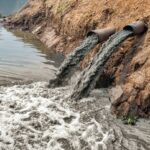Recent Blog Posts

EPA Proposes Action Concerning Economic Harm, Renewable Fuel Standards, and Ethanol Storage
The United States Environmental Protection Agency (EPA) is taking many actions through the Renewable Fuel Standard program intended to help farmers and refiners, especially those affected by the COVID-19 pandemic. The EPA is proposing rules concerning E15 label revisions underground storage tank (UST) compatibility, as well as rules concerning compliance with the Renewable Fuel… Read More »

NJDEP Continues to Bring New Enforcement Actions and Seek Natural Resource Damages
New Jersey’s Department of Environmental Protection (NJDEP) has been ramping up enforcement efforts since 2018 as part of a push to protect natural resources around the state. Companies alleged to have a history of contamination and limited remediation efforts are especially vulnerable to enforcement. Below, we discuss two recent lawsuits filed by NJDEP and… Read More »

New Jersey Requests Input on Environmental Justice Regulations
New Jersey Governor Phil Murphy recently signed into law a bill aimed at addressing environmental justice. The purpose of the law is to address the unfair distribution of the environmental and public health impacts on certain communities by imposing additional requirements on parties seeking to site, expand, or renew permits for facilities located in… Read More »

Appeals Court Holds NJDEP Settlement Does Not Bar Contribution Action for EPA Response
Real estate developers and managers know the daily headaches of dealing with the alphabet soup of state and federal agencies concerning environmental protection. Unfortunately, resolving a case with one agency does not always mean that another agency won’t come out of the woodwork to cause problems about the same exact matter. A federal appellate… Read More »

New Jersey Files Six New Environmental Lawsuits
As part of its push for aggressive environmental justice initiatives, New Jersey’s Attorney General and the Department of Environmental Protection (NJDEP) recently announced the state’s filing of twelve aggressive environmental enforcement actions against alleged polluters, specifically targeting defendants who allegedly polluted in minority and low-income communities around the state. The new batch of “environmental… Read More »

NJDEP Further Extends Remediation Reporting Deadlines
The coronavirus pandemic continues to rage on, putting a stopper in many development projects around the state and across the country. Many development projects have had to stall or delay indefinitely, and efforts to meet regulatory deadlines have posed a massive challenge for developers. In light of the difficulties in remediation posed by the… Read More »

New Jersey Permit Extension Act of 2020 May Not Apply to Many NJDEP Remediation Permits
In consideration of the COVID-19 public health emergency, on July 1, 2020, New Jersey Governor Phil Murphy signed into law the Permit Extension Act of 2020 (the Act). The Act modifies the timelines for reviewing applications for development by the land use boards of the State of New Jersey, and it tolls existing development… Read More »

Stricter NJDEP Protections for Rivers and Streams
While the New Jersey Department of Environmental Protection (NJDEP) has relaxed some deadlines for pollution response in light of the COVID-19 coronavirus pandemic and its attendant effects on businesses and the economy, the NJDEP is nevertheless hard at work strengthening environmental protections and pursuing enforcement actions. The NJDEP recently passed a set of amendments… Read More »

NJDEP Extends Remediation Deadlines in Response to Coronavirus
The COVID-19 coronavirus outbreak has interrupted every business sector in every part of the country. Many operations have needed to limit their workforce or close operations entirely, causing significant delays in real estate development, manufacturing, and remediation projects. The shutdowns have been mandated by the state and federal governments, especially since New Jersey Governor… Read More »

New Jersey Appellate Court Rules State Can’t Claim Trespass for Water Pollution
We have previously discussed claims brought by the New Jersey Department of Environmental Protection (“NJDEP”) against Amerada Hess Corp (“Hess”) in connection with alleged groundwater contamination and NJDEP’s remediation efforts. NJDEP recently brought additional claims against Hess for other instances of alleged contamination in Woodbridge Township, New Jersey. On top of the New Jersey… Read More »
